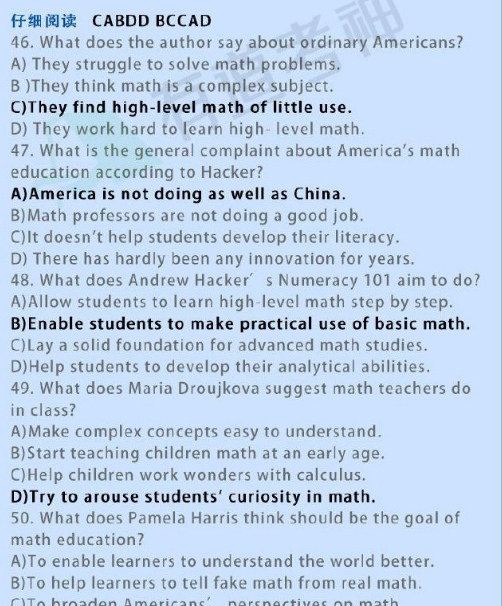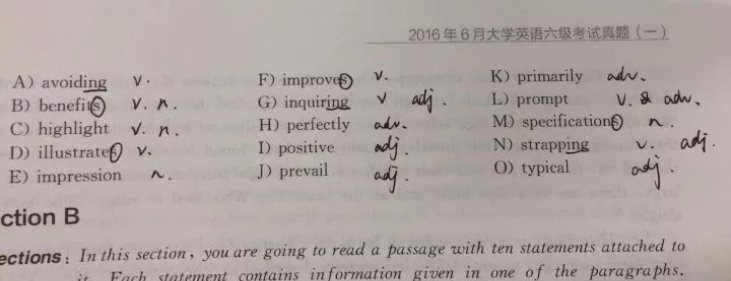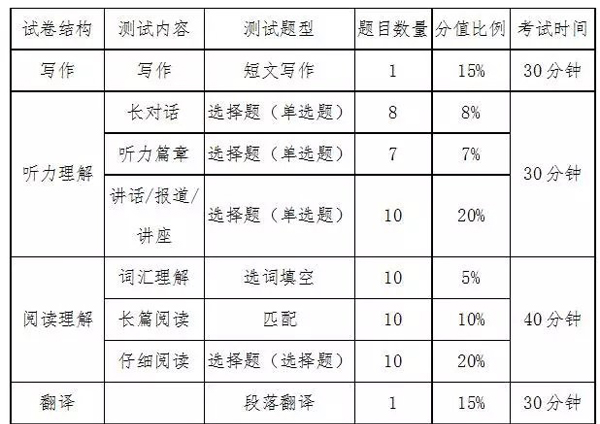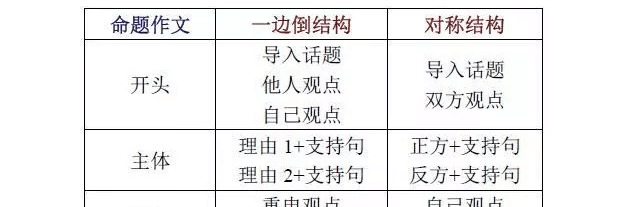2008年职称英语考试珍藏句型分析宝典(三十)
|
... the reason why ... 結構︰... the reason + why ... 說明︰此句型意為“…的理由”。why 是<關係副詞>,由“<介系詞>+<關係代名詞> which”變化而成,引導<形容詞子句>,修飾<名詞>。可保留 why,而將前面的<名詞>省略;也可將 why 省略。the reason why 無非限定用法,即 why 之前不可以加逗點。 Please tell me the reason why (=for which) you were absent. 請告訴我你為什麼缺席。 Tell me the reason (why) he refused to listen to my advice.告訴我為何他拒絕聽從我的勸告。 That’s (the reason) why he cried. 那就是他為何哭的原因。 ... the way how ... 結構︰... the way + how ... 說明︰此句型意為“…的方法”。how 是<關係副詞>,由“<介系詞>+<關係代名詞> which”變化而成,引導<形容詞子句>,修飾<名詞>。可保留 how,而將前面的<名詞>省略;也可將 how 省略。the way how 無非限定用法,即 how 之前不可以加逗點。 I don’t know the way how (=in which) he did it. 我不知道他是以何種方法做這事的。 That’s the way (how) he treats people. 那就是他的待人之道。 I know (the way) how he did it. 我知道他是以何種方法做這事的。 ... whoever/whomever ... 結構︰... whoever/whomever ... 說明︰此句型意為“任何…的人”。whoever 是<複合關係代名詞>,可做<主詞>或<受詞>,等於 anyone who; whomever 也是<複合關係代名詞>,但只能做<受詞>,等於 anyone whom。 Whoever commits the crime shall be sentenced to ten years in prison. 任何人犯了此罪就要被判處十年徒刑。 I’ll teach English to whoever wants to learn it. 誰想學英文,我就教他。 I hate whoever lies. 我痛恨任何一個說謊的人。 I like whomever you like. 你喜歡的人,我都喜歡。 You may dance with whomever you like at the dancing party.舞會上你想跟誰跳舞就跟誰跳。 ... whatever ... 結構︰... whatever ... 說明︰此句型意為“任何…的事”。whatever 是<複合關係代名詞>,可做<主詞>或<受詞>,等於 anything which。 Whatever she says is true. 她所說的都是實話。 They do whatever they are doing--all out.他們做任何他們所做的事--都是全力以赴。 You can’t always do whatever you like. 你不能老是做任何你喜歡的事。 Whatever my mother cooks is to my liking. 媽媽做的菜我都喜歡。 Whatever it is. 任何存在的東西都是存在的。 ... whichever ... 結構︰... whichever ... 說明︰此句型意為“(同一類的)任何…的東西”。whichever 是<複合關係代名詞>,等於 any one which。與 whatever 的用法完全相同,只不過 whichever 是指同一類的任何一項,而 whatever則指不同類的任何一項。 I have three cars, and you may have whichever you like. 我有三輛車,你可以挑一輛你喜歡的。 I have a car, a house and an orchard and you may have whatever you like best. 我有一輛車,一棟房子和一座果園,你可以挑一樣你最喜歡的。 These pictures can be kept for free. You may take whichever you like. 這些畫可免費擁有。你喜歡哪一幅就拿哪一幅。 否定句型 I am not ... 結構︰主詞+be 動詞(am/are/is)+not+…。 說明︰在肯定句中 be <動詞>的後面加 not 就構成<否定句>。 I am not a student. 我不是學生。 You are not a lawyer. 你不是律師。 It is not a watch. 它不是手錶。 I am not + V-ing. 結構︰主詞+am(are/is)+not+現在分詞…。 說明︰此句型意為“<主詞>(人,物)不是正在…”。要構成<現在進行式>的<否定句>,只需在 be <動詞>後面加 not。 They are not playing. 他們不是正在玩。 She is not watching TV. 她不是正在看電視。 We are not cleaning the room. 我們不是正在打掃房間。 I don’t + V ... 結構︰主詞+don’t/doesn’t+原形動詞+…。 說明︰此句型意為“<主詞>不(沒有)做某事”。肯定句中,如有一般<動詞>(speak/work/teach/…),則在一般<動詞>前加 don’t 或 doesn’t,並將一般<動詞>改為原形<動詞>(不加s或es),即構成<否定句>。 I don’t have any brothers. 我沒有任何的兄弟。 He doesn’t know Mr. Brown. 他不認識布朗先生。 My mother doesn’t speak English. 我母親不會講英語。 I wasn’t ... 結構︰主詞+was/were+not+形容詞+過去時間。 說明︰此句型意為“<主詞>不是…”。was,were 是 be 動詞的<過去式>,當句中出現以下<副詞>(<片語>)時,<動詞>常用過去式:ago,before,yesterday(morning,afternoon,evening), last night,the other day,in the past,just now…。 在 was,were 後面加 not,即構成 be <動詞>過去式的<否定句>;將 was,were 移到句首,w 改為大寫,句點改為問號,即構成 be <動詞>過去式的<疑問句>。 Tom was not busy yesterday. 湯姆昨天不忙。 We were not at home yesterday. 我們昨天不在家。 It was not hot yesterday afternoon. 昨天下午天氣不熱。 The boys were sick yesterday. 這些男孩昨天生病。 It was cold last winter. 去年冬天天氣寒冷。 Was your brother early to class yesterday morning? 你弟弟昨天早晨上課早到嗎? |








